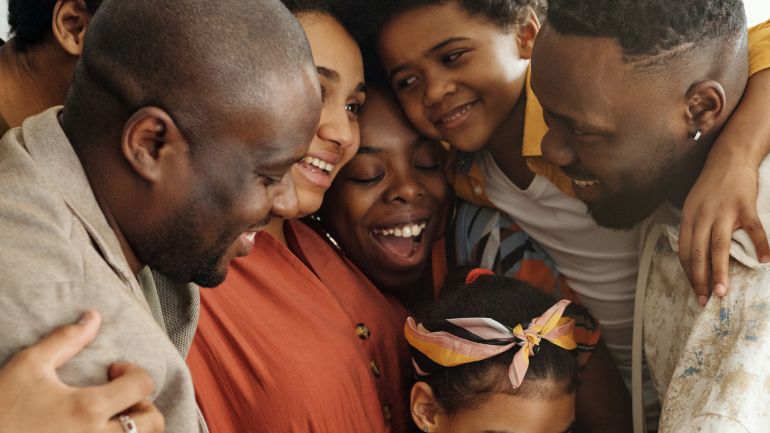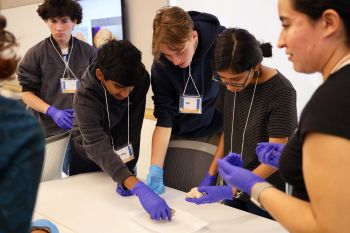With the holiday season approaching, my family is starting to spend a TON of time together—my brother is coming home from college, my sister is finishing up exams, and my dad is taking off from work. We’ve already enjoyed Thanksgiving together, set up Christmas decorations, watched plenty of movies, prepared for my sister’s performance in The Nutcracker, and overall have spent time bonding and reconnecting with one another.
As an African American family, we have also spent some of this family time discussing race. It is no secret that racism is still as prevalent as ever. As my siblings and I try to navigate our place in the world, we are having conversations with one another trying to understand what justice looks like and means, how to find peace as African Americans in the US, how to make good choices when faced with obstacles, and determining ways that we can really support each other as a family.
My own family experience is just one example of why families are a key developmental context during adolescence.
“Families are a primary source of support for Black youth and provide critical racial and ethnic socialization,” said Dr. Andrew Fuligni, introducing our recent webinar, Supporting Youth in the Context of Family Throughout the Pathways for African American Success Program with Dr. Velma McBride Murry.
Research shows that programs that support Black families in turn support healthy development of Black youth, even in the face of daily experiences of racism. The webinar focused on one such program: Pathways for African American Success (PAAS), a family-based digital program designed to build on the strengths of Black and African-American parents and their communities to help prevent unhealthy behaviors and promote academic success for youth.
Dr. McBride Murry, a professor at Vanderbilt University, (former Vanderbilt alumni writing this, hello!) used her extensive research on African American parents and youth to design, develop, and implement the PAAS program to apply some of the protective processes that she was uncovering in her research. Watching her brother-in-law and nephew connect over a basketball videogame convinced her that a computer-based format might be an effective way to engage youth and their families.
Using storyboards, conversations with African American parents and youth, and writing and recording dialogue for the program’s avatars, Dr. McBride Murry and her colleagues designed the program to support some of the key factors for parents and youth that her research showed helped support positive development.
For parents, these factors include learning positive parenting strategies, nurturing supportive family relations, talking about issues of race, and establishing norms and expectations for youth behavior. For youth, the factors include setting goals and thinking about the future, increasing self-regulation, developing a sense of racial pride, and learning skills to avoid risky behaviors. In the short term, these processes can reduce conduct problems. In the long term, they support overall positive development and encourage school completion, reduce pregnancy and HIV/AIDS exposure, and prevent problematic drug and alcohol use.
Dr. Velma McBride Murry also shared the “creed” that the students participating in the program would recite at the end of their sessions: “We are strong young African Americans. We are making good decisions so we can meet our goals.”
“They would stand…saying the creed, talking about the strength of African-American families, the richness of their history, and that they’re about to grow to be healthy, well-functioning adults because they make good decisions and they reach their goals,” she explained.
Ultimately, as I know from my own family, families have the opportunity to be an essential source of strength and support for one another, and Dr. Velma McBride Murry’s program provides a research-based way to leverage the importance of families throughout adolescence.
She concluded the webinar with this point: “Regardless of who you are, the ultimate goal if you’re a parent and if you’re someone invested in young people is to raise healthy youth and create an environment where this can happen, and I see this [PAAS] as a platform where we can begin to think about doing that.”
To learn more about the PAAS program, visit their website or check out the resources we’ve listed here: https://developingadolescent.semel.ucla.edu/topics/item/video-supporting-youth-in-the-context-of-family



_350_233_80_c1.jpg)